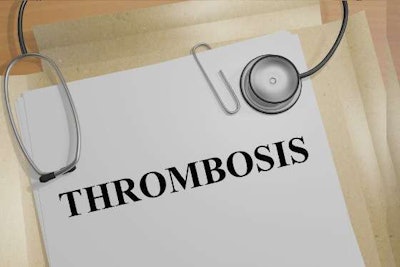
But what do those medical terms mean? For truckers, it turns out they could mean a lot.
Thrombosis refers to life-threatening blood clots which form in the artery or vein. Truckers may be at an increased risk for this due to sitting for much of the day. While no research has looked directly at sitting’s impact on trucker health and truckers’ veins, the Centers for Disease Control warns that blood clots can form in the deep veins during travel because of sitting still for long periods of time.
Being sedentary for prolonged lengths of time is a major risk factor for blood clots. Get up and move as much as you can. You may be limited to how often you can stop, so when you do, get out of your truck and walk around. While driving, you can flex your foot up and down to increase blood flow.
Talk with your doctor if you believe you may be at risk for blood clots.
Symptoms of DVT to look for are:
- Pain or tenderness, which may often start in the calf
- Swelling, including the ankle and foot
- Warmth
- Redness or noticeable discoloration
Symptoms of PE in the lungs are:
- Unexplained shortness of breath
- Rapid breathing
- Chest pain which may worsen with deep breaths
- Rapid heart rate
- Lightheadedness/passing out
According to WebMD, you should call 911 and seek immediate medical help if you experience the following symptoms:
- Sudden coughing
- Sharp chest pain
- Rapid breathing or shortness of breath
- Severe lightheadedness
What are some questions you should ask your doctor?
If you’re staying in the hospital, you’ll want to go over these questions with your doctor:
- What is my risk for a blood clot in my leg?
- Should I receive some type of prevention for blood clots while I’m in the hospital?
- Should I also receive some type of prevention for blood clots once I’m discharged from the hospital and for how long?
Seek medical help if you think you have DVT/PE symptoms and ask:
- Could this be a blood clot?
- Should I have diagnostic tests?








